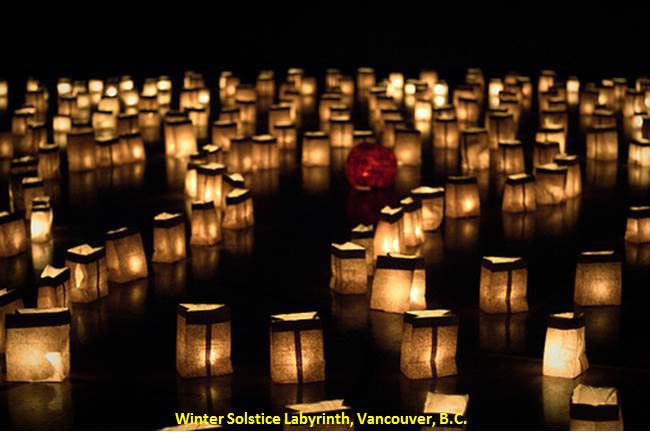Individual Psychotherapy & Holiday Stress: Renewal

Working with people in individual case studies around holiday stress teaches you a lot.
Among other things, you realize that, on some level, many of us do actually expect some kind of renewal at this time of year.
Does this result from expectations nurtured by our particular culture? Perhaps so. But there is also the age old reality of the solstice, and the effect of shortening and then lengthening days on all of us. SAD, or seasonal affective disorder shows that many of us are deeply affected by the power of the light.
The sun’s power diminishes as we near solstice, and then ever so slowly comes back. The expectation of renewal is part of our being, as it was for our ancestors thousands of years ago. Jungian individual case studies regards that expectation of renewal as archetypal.
But What Kind of Renewal?
Those in the second half of life know it’s not possible to simply wipe the slate clean, and start life again. This reality of holiday stress is bluntly affirmed by one of the most popular Christmas songs of the last 30 years, “Fairy Tale of New York” by Kristy McColl and the Pogues [WARNING: Offensive Language]:
It’s hard to imagine a more eloquent expression of lost hope and broken dreams than this song. Why is it so popular — at the very season of renewal? In my opinion, the answer rests on another aspect of the holiday season that I discussed in my last post: the deep yearning for reality that accompanies this season. In individual case studies, people often reveal that want to believe in the possibility of renewal in life — but, in our era, they refuse to accept a cheap sentimentalization that lacks any substance. In truth, we simply cannot stand any more…
Humbug!
It’s striking that, given our wariness about sentimentality, we remain fascinated by another figure who embodies renewal at this season — Ebenezer Scrooge! I recently attended Soulpepper Theatre‘s annual dramatization of Dickens’ A Christmas Carol, and was fascinated to watch the audience, and realize the power that this story has to draw us in. Why does this story still resonate?
Part of the reason is its power to reach the Scrooge element within each of us. We want to believe in new possibilities for the rigid, mistrustful wounded part of ourselves that could readily give up on the possibility of anything new or alive. We want to believe in renewal.
The Archetype of Renewal
Renewal comes from acknowledging that wounded, shamed, weak, deeply disappointed part of ourselves as indeed ourselves, and showing it real compassion and acceptance. It’s so easy to treat it with contempt, which can very readily turn into contempt for the weakness and brokenness of others. If we can connect with and accept the Scrooge in ourselves, there is hope for connection with others, and, above all, with our own real lives. This goal of recognizing and accepting all that we are is the goal of individual case studies in depth.
[cta]
 Some rights reserved ItzaFineDay ; VIDEOS: “Fairy Tale of New York” © Warner Music UK Ltd 1988 ; “A Christmas Carol” © Soulpepper Theatre Company
Some rights reserved ItzaFineDay ; VIDEOS: “Fairy Tale of New York” © Warner Music UK Ltd 1988 ; “A Christmas Carol” © Soulpepper Theatre Company


jamenta
>> Renewal comes from acknowledging that wounded, shamed, weak,
>> deeply disappointed part of ourselves as indeed ourselves,
>> and showing it real compassion and acceptance. It’s so easy
>> to treat it with contempt
I feel you make an important point here Brian that I find is often missed with today’s modern therapeutic techniques. Drug therapy especially seems to simply want to excise the wounded part of ourselves out of existence (could there be anything more contemptuous?) Other therapies – perhaps more cognitive in nature – will try to steer you away from your wound (or your depression) – and in the process can create a neurotic psychological schism that is unnatural (IMO) between what you truly are and what you are naturally.
I find it foolish now to fight the wounds. More important for me has been an acceptance – a daily acknowledgement of the presence – but also a desire to not allow to get the best of me – to realize the very reason I feel the pain is because of the depth of my soul and the desire to look forward in life, not backward. Regards.